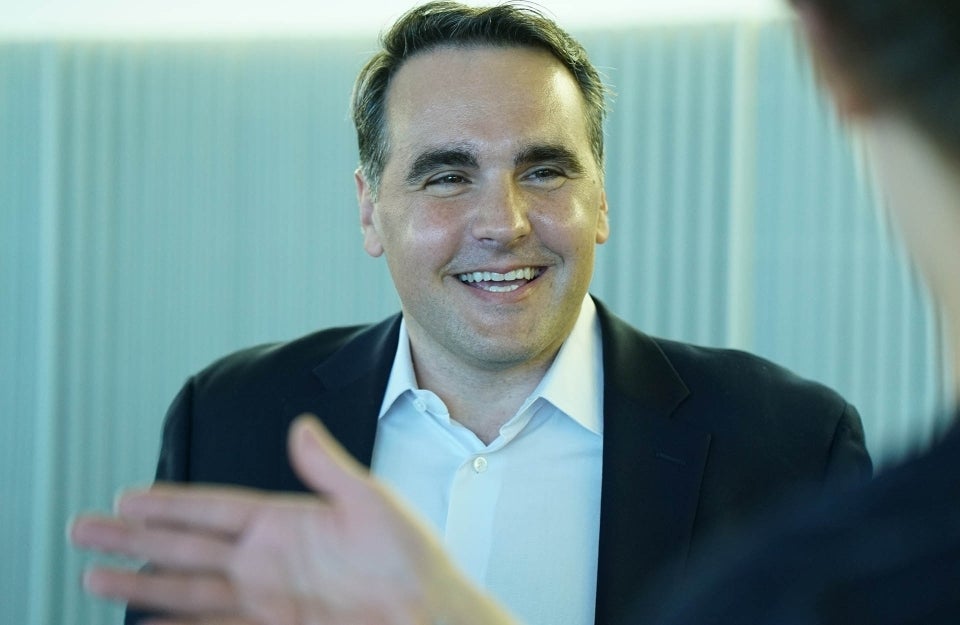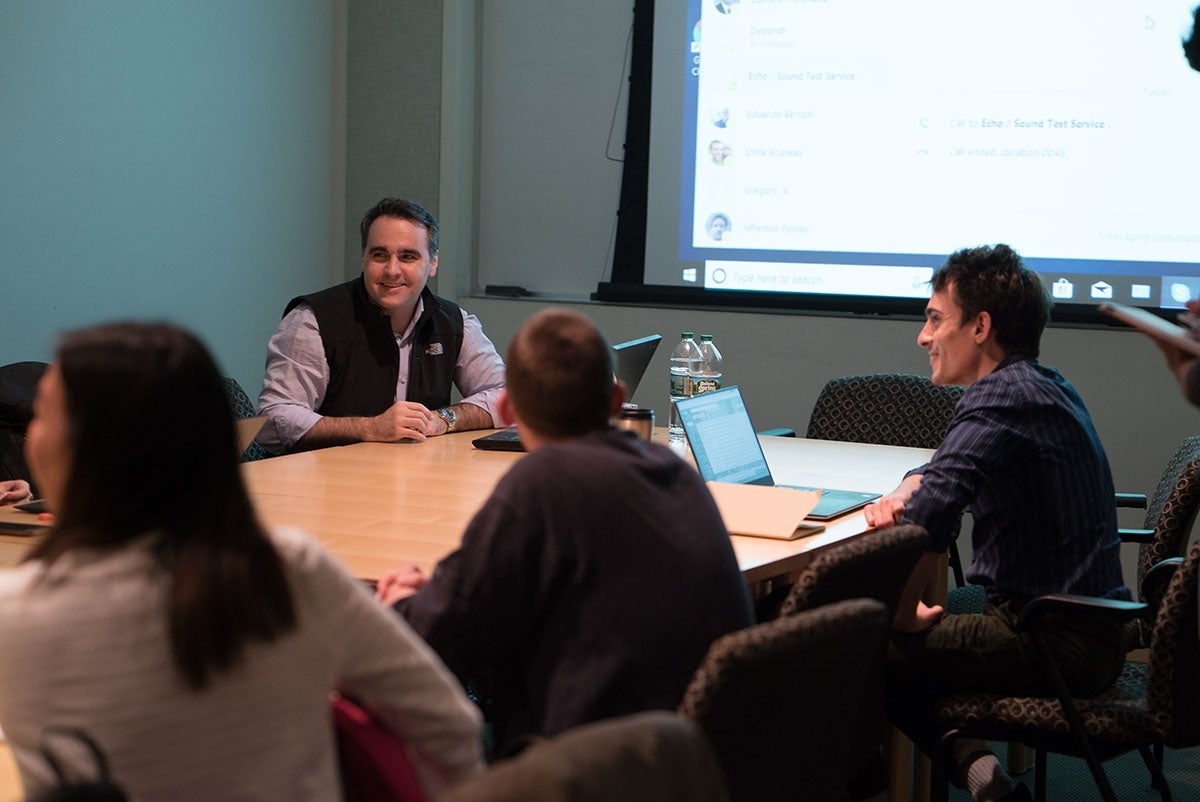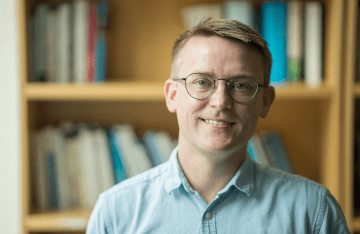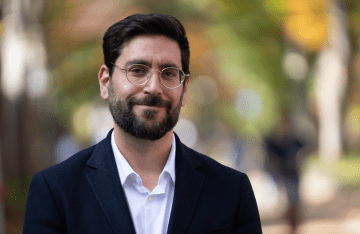Network Dynamics Scholar Damon Centola Promoted to Full Professor
He is radically changing the way we understand longstanding sociological and communication issues.

Want to know whether competition or comradery encourages people to exercise more? Or how many people it takes to start a revolution? Then Damon Centola — who was recently promoted to full professor at the University of Pennsylvania — is your go-to person.
“Damon Centola is radically changing the way we understand longstanding sociological and communication issues,” says John L. Jackson, Jr., Dean of the Annenberg School for Communication. “He is at the forefront of his field, and I am thrilled that he has been promoted to full professor.”
Centola’s first book How Behavior Spreads: The Science of Complex Contagions (Princeton University Press, 2018) has upended the last 50 years of orthodoxy in sociology. Traditional wisdom says that behaviors spread like viruses, but Centola found the opposite. He devised an experiment in which thousands of people could be connected together in controlled settings on the Internet, and revealed exactly how behaviors spread through large social networks. While information and gossip do spread like epidemics, behaviors spread differently.
“The spread of new behaviors often depends on legitimacy,” says Centola, Professor of Communication and Engineering. “For the spread of a virus, all it takes is one sick contact to infect you. This is typically not true for new behaviors. When people are concerned about the legitimacy of a behavior, the non-adopters around them are just as influential as the adopters. This relatively simple difference between viruses and behaviors radically changes the network dynamics of spreading.”
Centola’s other research points to collective intelligence — groups of people working together to determine the best solution to a problem — as the most effective way to spread change. In a 2018 study, he showed that participants who interacted in anonymous social media networks were more likely to correctly interpret climate change data than those who didn’t, regardless of political affiliation. In another study, Centola found that peer learning within social networks could increase belief accuracy, even within echo chambers.
His other research applies these findings outside the academy. He’s worked with the Philadelphia 76ers to help reduce bias in the recruiting process, by showing that group decision-making is a more reliable way to making scouting decisions than relying on expert scouts. And he’s currently conducting a series of studies that apply the same network strategy to help hospital physicians to remove bias from their clinical diagnosis process.
Centola’s networks approach has garnered an impressive array of academic laurels, receiving the American Sociological Association’s Award for Outstanding Article in Mathematical Sociology on three separate occasions. He has also received the Goodman Prize for Outstanding Contributions to Sociological Methodology, the James Coleman Award for Outstanding Research in Rationality and Society, and the Harrison White Outstanding Book Award. He has received grants from the Robert Wood Johnson Foundation, the National Science Foundation, the National Institutes of Health, the James S. McDonnell Foundation, the Hewlett Foundation, and Facebook. His research has been published in journals such as Science, Nature, Proceedings of the National Academy of Sciences, American Journal of Sociology, and Journal of Statistical Physics, and been covered in media outlets including The New York Times, The Washington Post, The Wall Street Journal, Wired, and TIME.

Centola is Director of the Network Dynamics Group, which is dedicated to connecting theoretical research with empirical application and, ultimately, policy applications. The group includes physicians, computer scientists, sociologists, and graduate students in Communication and Engineering, with whom he regularly collaborates on research. Centola says it’s one of his favorite parts of being an academic. Their latest work explores the nature of social categories, and how they emerge across different societies.
“The students are really interesting, and they bring a remarkable variety of perspectives,” says Centola. “Working with students doesn’t just offer an opportunity to share your research training. It also allows you to build out your way of thinking about the world, and I find the give and take of that relationship tremendously satisfying.”



